Volunteers are employees who are prepared to travel to the four corners of the world to put their experience and skills at the service of others.
A Veoliaforce volunteer is a Veolia employee who, during his or her working hours, goes on a mission on behalf of the Veolia Foundation. Previously trained in humanitarian emergencies and the use of intervention equipment designed by the Foundation, they may be in the field for several weeks or provide their expertise remotely. They leave at the request of international humanitarian organisations after a disaster or to improve the living conditions of the most disadvantaged on a long-term basis. They provide expertise in one of the Group's core businesses: Water, Energy, Waste;
The Foundation coordinates and pays for logistics and travel expenses; Veoliaforce volunteers continue to be paid as if they were working in their usual job.
What about ERUs? Veoliaforce volunteers can be made available to the French Red Cross, a long-standing partner of the Veolia Foundation, to join its Emergency Response Teams (ERU). Illustration after the September 2023 earthquake in Morocco.
Become a Veoliaforce volunteer?
Employees of the Veolia Group can apply to be included among the Veoliaforce volunteers of the Veolia Foundation by following this link (access reserved for Group employees):
For which missions?
Since its creation in 2004, the Veolia Foundation has carried out nearly 250 expert missions, both on development projects and in humanitarian emergencies. Illustrations in Pakistan, Haiti, Lebanon, Bangladesh, Myanmar...
Veoliaforce volunteers's stories
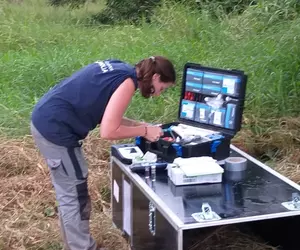
Camille Beaupin: "The concept of time is different in humanitarian emergencies."
You were asked to go on this Veoliaforce volunteer assignment. How do you prepare for travelling to a humanitarian emergency situation?
Camille Beaupin: You obviously need to plan ahead as you will be away from both work and home, and you need to be in a position to be responsive and fly out the very next day. Once the practical arrangements have been sorted out, you can fully devote yourself to your role.
I had never worked in a post-humanitarian disaster context before, so I found arriving on the ground slightly disconcerting. Many humanitarian aid workers were on the ground and coordination is done as well as possible, but information transfer is not always perfect. I discovered what goes on "behind the scenes" in humanitarian work over the first few days. It's a job in itself - identifying needs, tailoring resources, sharing out equipment etc.
You teamed up with a permanent member of the Foundation's staff and set up an Aquaforce 2000, the mobile drinking water purification unit designed by the Foundation's engineers, working with MSF.
CB: Yes, several dozen kilometres from Dombé to the west of Beira. We needed to pinpoint the best water supply point and organise access to the distribution systems that we wanted to set up as close as possible to the local communities, i.e. 1km of piping had to be laid in the open country.
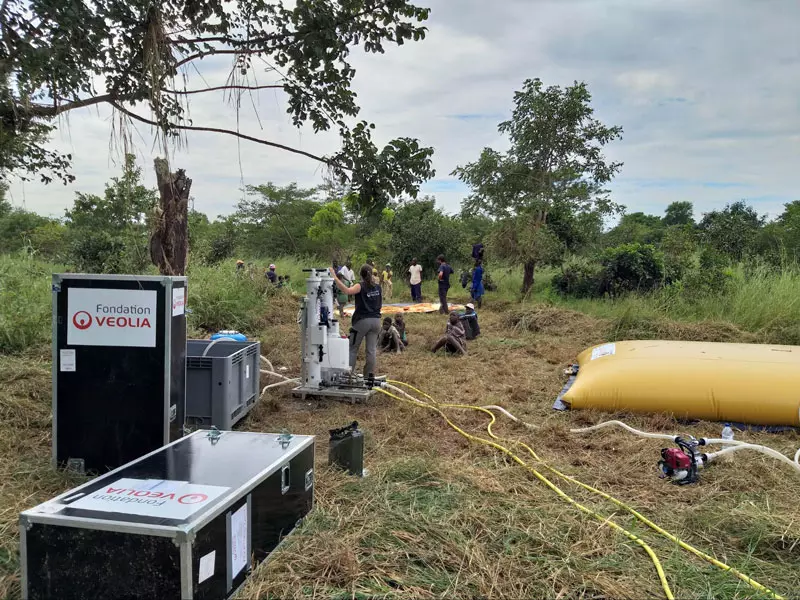
How did you get on with the local population?
CB: Because we were producing water with equipment that was unknown to the Mozambicans, we had to adopt an educational approach, drink the water from the Aquaforces, and, in a general sense, explain what we were doing. But above and beyond our work as Veoliaforce volunteers, the local communities were very dynamic, despite the tragedy that had occurred. People are resilient and are already looking to rebuild in a relatively independent way. It was impressive stuff and I did at times wonder how we would react in France if faced with this sort of disaster...
What surprised you the most during this assignment?
CB: Volunteers need to be flexible to deal with the contingencies. The situation changes every day, everyone wants to do their best but has to coordinate with the other stakeholders involved. And then you are in contact with contacts abroad, without always grasping that it is actually the weekend elsewhere in the world and decisions will only be taken on Monday. The concept of time is different in humanitarian emergencies.
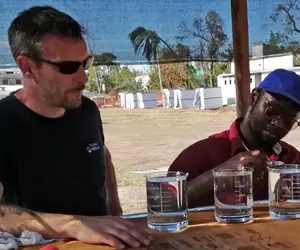
Sylvain Delage: "People had nothing left in Dombé"
You left in early April as part of the second wave of Veoliaforce volunteers after Cyclone Idai hit Mozambique. What were your first impressions on the ground?
Sylvain Delage: It was both surprising because we didn't really know what to expect, yet everything also seemed quite organised. I didn't know who was going to greet me in Beira but I followed my luggage which a driver had loaded into a MSF car. This was followed by a briefing with the NGO's teams (the NGO is a Veolia Foundation partner), and then we were very swiftly on the ground. We slotted into fluid processes despite being in a humanitarian emergency context.
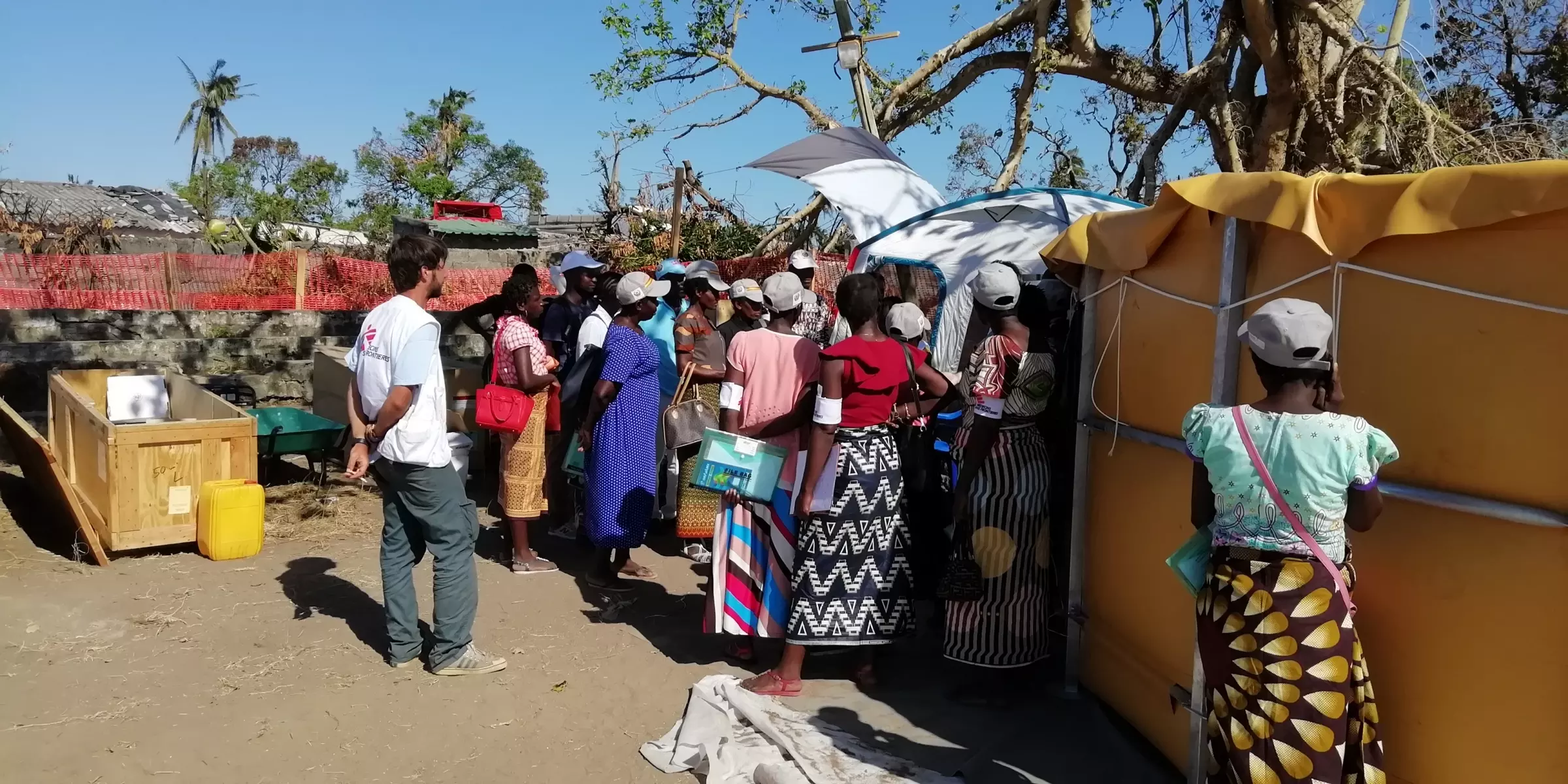
In Beira and then Dombé, you operated the Aquaforces, the mobile water production units designed by the Veolia Foundation, and trained staff to use them.
SD: Yes, the first wave of Veoliaforce volunteers deployed the equipment and those, like me, who came on the second wave, operated the units and prepared the Aquaforces for life after our departure. With Julien de Sousa in Beira and Camille Beaupin in Dombé, we trained MSF staff and local volunteers so that water production could continue after we all left.
You worked in an urban area in Beira and in Dombé in the rural region of Manica. What is life like for the communities hit by Cyclone Idai?
SD: Things are very different depending on the environment. Rebuilding has begun in Beira and there are lots of people in the markets, people have smiles on their faces, and their resilience is coming to the fore. The atmosphere is completely different in the rural areas. People have nothing left: they are hungry, they flag you down at the roadside, tell you about spending three days perched in the trees waiting for the water levels to go down. The climate is also more challenging and the living conditions for Veoliaforce volunteers are basic: no water or power...we had to acclimatize to it.
How did you find returning home after three weeks away?
SD: A Veoliaforce volunteer assignment is first and foremost an enormous amount of visual information to take in. The days are packed and you have to constantly pay the utmost attention. You come back to a more normal pace of life. As for me, all I need is a good night's sleep and I am ready to go! My colleagues were curious about what I had been doing for three weeks, so I prepared a report, with lots of photos, to tell them about it.
Interview by Veolia Foundation
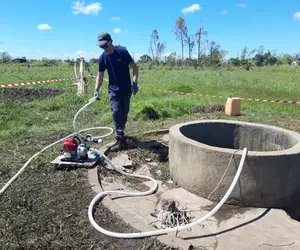
Romain Thémereau: "A further reason to love my job"
You travelled to Mozambique only a few days after Idai, a category four cyclone, ravaged the Beira region. What were your first impressions on the ground?
Romain Thémereau: It was really shocking! Houses had lost their roofs, the tops of trees had been ripped off... I had prepared myself but it was staggering. I had already travelled to Iraqi Kurdistan for the Veolia Foundation on a training assignment but natural disasters and humanitarian emergencies are unique.
What did you do on the ground?
RT: I teamed up with Marlène Cothenet, another Veoliaforce volunteer, and we set up two Aquaforce 2000 units - the mobile drinking water production units designed by the Veolia Foundation. We needed to identify the right locations in Beira and the surrounding area before we set up the equipment in order to ensure that the water produced was as useful as possible. We then trained local people so that they could continue operating the Aquaforces after we left.
You spent three weeks away. How did your colleagues cope with you being away from work?
RT: I am fortunate enough to have an independent team at the plant that I manage in Blois. At the same time, my line manager gave me the go-ahead and everyone pitched in so that things went as well as possible.
And how did you find coming back to France?
RT: I think you need 24 hours to get back on your feet. And then you become aware of our comfortable lifestyle and how lucky we are. Clearly, the Veolia Foundation's work fits with my personal values. This sort of voluntary work is a further reason to love the job I do in France. This sort of practical involvement is vital for me. It helps provide a balance between my daily life and my firmly held belief about helping others.
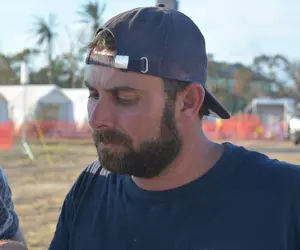
Julien de Sousa: "Supplying water in emergency situations is vital"
The Veolia Foundation asked you to volunteer your skills in Mozambique. When a humanitarian disaster occurs, volunteers have to leave in just a few days. How did you organize this, from both a work and personal perspective?
Julien de Sousa: The very day that the Foundation called, I talked to my partner about it. We are the parents of a little girl who has just turned one. My partner told me to "go for it!". The next day my line manager at Veolia gave me the go-ahead and I had to dash around getting vaccinated and completing the formalities so that I could be on the ground on 29 March.
You spent three weeks on the ground deploying Aquaforce mobile drinking water production units, working alongside MSF, one of the foundation's partners...
JS: MSF had already scouted for locations in order to guide us with regard to water requirements and first and foremost was starting to set up cholera treatment centres. The disease is endemic in the region and an epidemic was on the cards due to the stagnating water. We had an Aquaforce 15,000, a drinking water production unit designed by the Veolia Foundation and able to supply 15,000 people with 20l per day (the WHO standard). However, the population was very scattered, so the unit was too big for the health centre where we were located. We had to adopt a pragmatic approach and run two supply lines from the Aquaforce so as to tailor our resources to the needs, located in Beira but also further to the west of the city.
How is this type of humanitarian work perceived by colleagues and outside Veolia?
JS: I am fortunate enough to have a highly competent team who are able to effectively handle the vagaries of our work when I am away. In my view, I also needed to inform the local councillors, our local contacts, to explain to them what a Veolia employee was going to do on the ground in the context of a humanitarian mission. People are largely unaware of our ability to manage this type of situation. It is however vital. Supplying water to needy people in emergency situations is not inconsequential; it could even be viewed as absolutely vital.
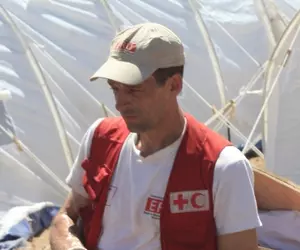
Cédric Thévenot: "The atmosphere in the first days following a disaster is very unusual."
You set off very soon after the disaster took place. You were one of the first humanitarian aid workers to arrive on the ground alongside the various Red Cross staff members...
Cédric Thévenot: Yes, as a member of the Red Cross ERU, I am regularly asked to travel to disaster areas and be on the front line. To tell you the truth, I like it! Of course, there is a surge of adrenaline as you want to help the disaster-hit communities as soon as possible, and at the same time you have to manage phases of inertia, when everyone is getting organised and is coordinating, even as people need help. This may take several hours or half-days, but when faced with a distraught population who are shocked by what has just happened, it is always difficult.
In this case, a cargo plane arrived 24 hours after us, so we unloaded the equipment and identified a storage warehouse. At the same time, the NGOs were trying to assess the needs and rank the priorities, which was not easy at all given that a large number of areas were still inaccessible. All in all, the atmosphere really is unique.
Was the scale of the disaster clear right from the outset?
CT: No, because the affected area was very big and most of the roads were impassable for the first few days. We only had one or two helicopters available. Logistics were the main issue: how to travel around, how to transport the equipment etc. We needed to find vehicles and drivers. And then sometimes you have pleasant surprises such as when we came across 5,000m³ of drinking water stored by the local operator since the supply system had been shut down. This meant that we could arrange water trucking to deliver the water to the local population.
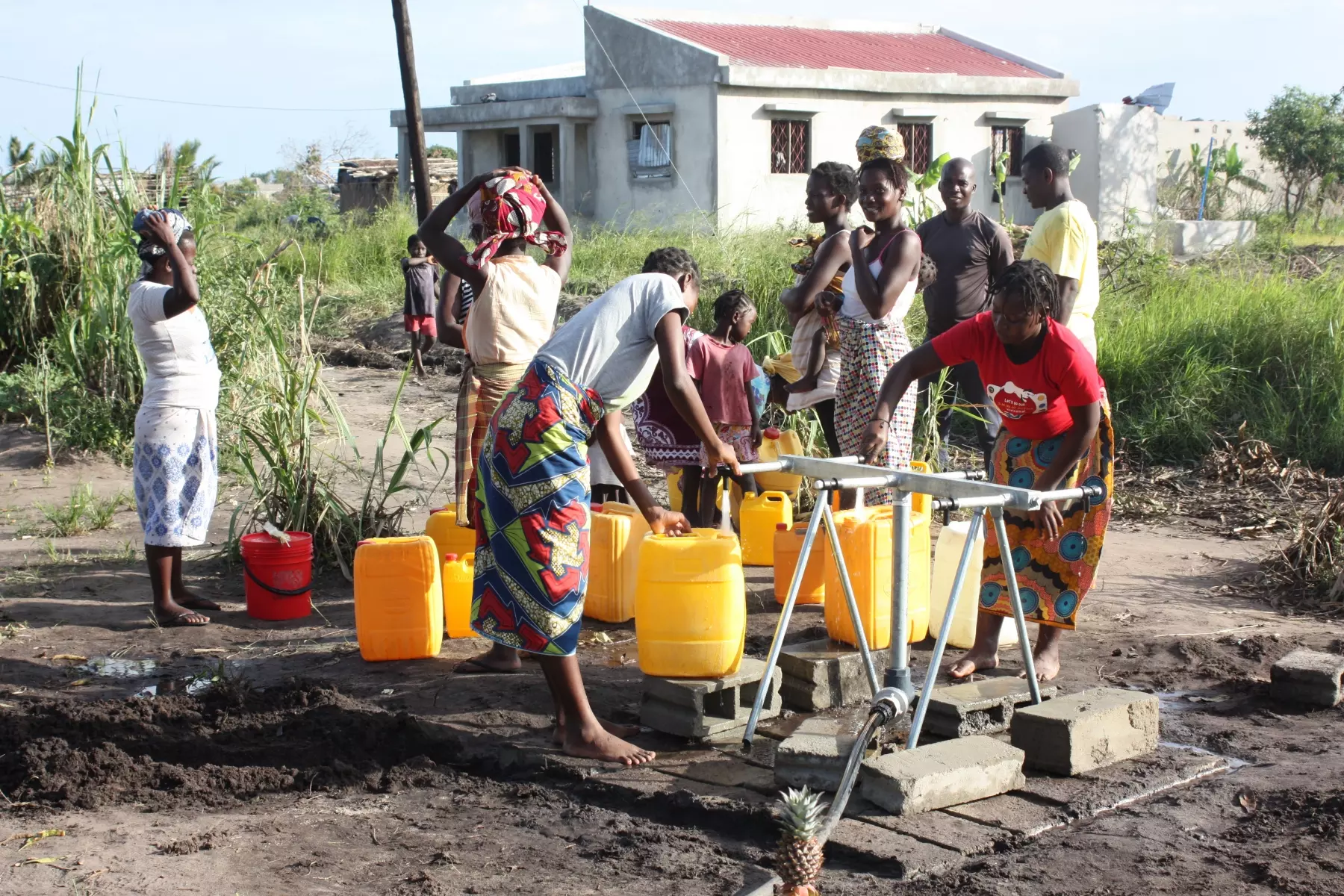
Knowing where to produce water is not obvious in this context...
CT: As there was a need to manage the flow of injured people who were going to arrive and the cholera outbreak feared by all the NGOs, medical centres were the priority. We installed water treatment and drinking water storage units, as well as latrines, near to hospitals and in the temporary camps for the cyclone victims.
Heading off to a disaster zone with virtually no prior warning requires both personal and professional organisation. How did you cope?
CT: I am fortunate enough to have a colleague, Mickaël Pannard, at Doubs where I work, who is also a Veoliaforce volunteer, and we are very supportive of each other. When one of us goes to do humanitarian work, the other one ensures that everything runs smoothly in the team. From a personal perspective, as I have been in the ERU for a decade and I have been a Veoliaforce volunteer for close to 15 years, my family are well aware of the fact that I may head off at any time! We have two children and the advantage is that real life restarts very quickly when you get back...
Interview by Veolia Foundation.
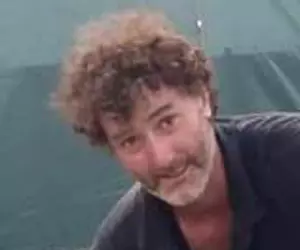
David Poinard: "I had never before seen the phenomenon of soil liquefaction extending over several kilometres."
On 28 September 2018, a serious earthquake and tsunami devastated the island of Sulawesi, Indonesia. Engaged in emergency humanitarian operations organized by the Ministry of Foreign Affairs, the Veolia Foundation sent two Veoliaforce experts into the field. One was David Poinard, Technical Service Manager Water Engineering for Greater Lyon. He tells us about his 15 day mission in Palu, Indonesia.
Before any Veoliaforce volunteers leave, the Veolia Foundation works to support them so they are able to work in the best possible conditions. And according to David Poinard this support is essential: "Before I left, the Foundation sought to target the needs of the population and the most accessible places with good hydrological conditions in order to help them. It first identified an installation site in a safe area and then made the first contact with local authorities, including the Indonesian Red Cross, with a view to developing a mission strategy," he says.
Once there, David Poinard says he was stunned by the devastation caused by the tsunami. Although he had been on missions in disaster areas before, he had "never before seen the phenomenon of soil liquefaction extending over several kilometres". Houses reduced to rubble and villages completely swept away were adjacent to some neighbourhoods which had not been impacted by the earthquake. "What surprised me the most was the optimism of the people there who had no hesitation in reaching out to us and were still smiling despite everything," he admits.
An intense 15 day mission
The following 15 days were "particularly intense": although David Poinard and his colleague José De Graeve, the Foundation’s logistics manager, were working very long hours in the stifling heat, they managed to offer concrete support. During this mission, David Poinard set up drinking water production stations "on the basis of the criteria identified and selected by the WHO". Two mobile water treatment units (Aquaforce 2000) were installed on the main Palu River, producing nearly 40 m3 of water per day, which was distributed to several thousand people. The volunteers also took care of the supply for the water tankers taking water out to the affected populations.
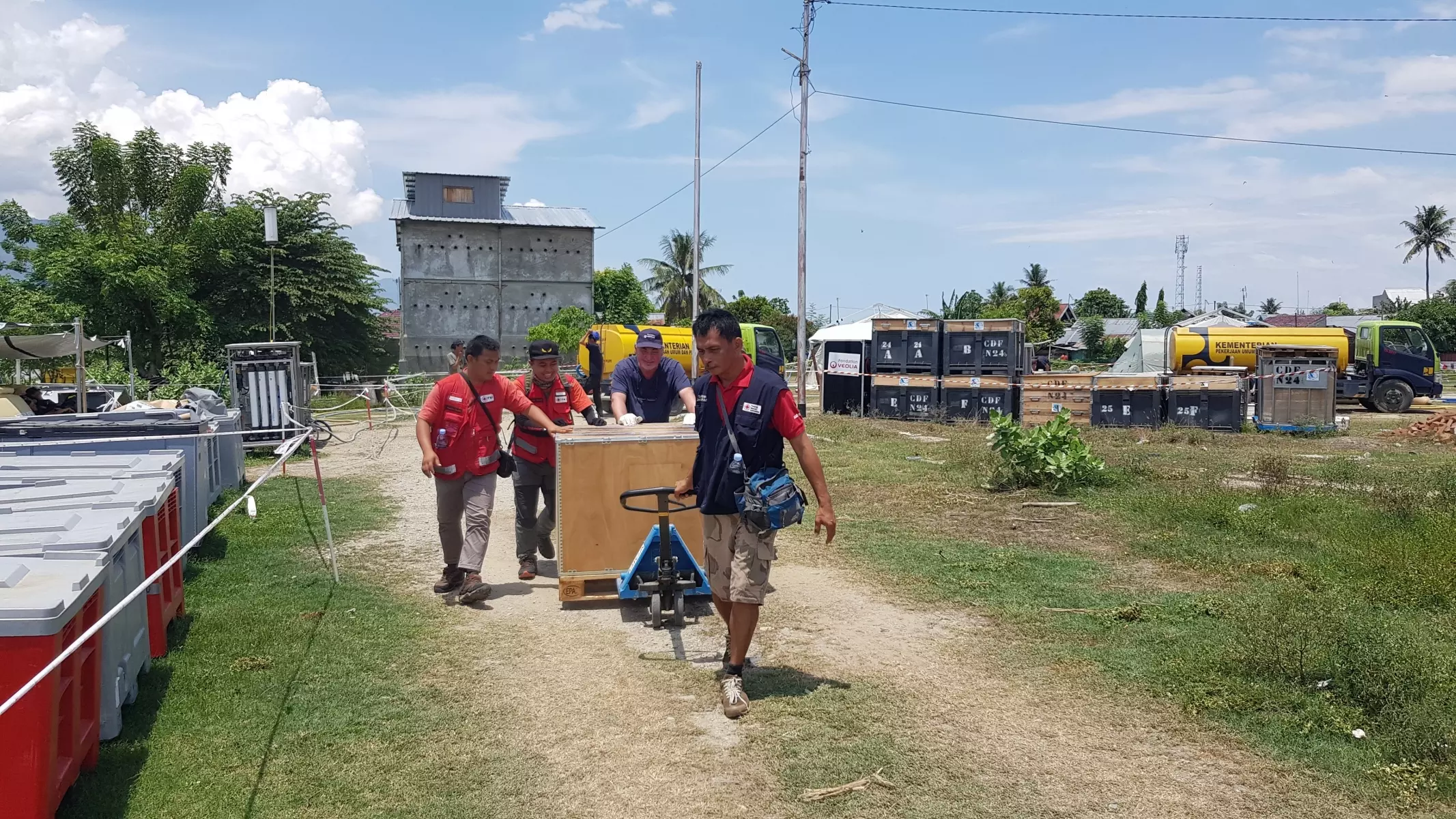
The two experts sent by the Foundation were also responsible for training the local Indonesian Red Cross teams so they would be completely autonomous and after their departure could continue to ensure the production and distribution of water to the population while simultaneously continuing their hygiene awareness work in the refugee camps. Although the technical part of the water supply was efficiently provided thanks to the suitability of the equipment developed by the Foundation, "it is organizing and coordinating the various teams that was the most difficult aspect," he explains.
The Veolia Foundation, at the heart of the "resourcing the world" mission
David Poinard, a Veolia employee since 2001, was not venturing into unknown territory. A Veolia Foundation volunteer since 2005, he was previously in Saint-Martin in 2017 following Hurricane Irma. An earlier still in 2015, he helped in an IDP camp in Bardarash, near the conflict zones in Iraqi Kurdistan, where he assessed access to clean water.
The Veolia Foundation is involved in the emergency missions that punctuate international crises through its network of volunteer Veolia employees that have been trained in field conditions beforehand. Its primary aim is to help following natural disasters or improve the living conditions of destitute people. "The Veolia Foundation is the quintessence of our leitmotif, which is to resource the world," explains David Poinard. Behind the actions are "the people on the ground where there are humanitarian emergencies, but also all the teams that coordinate missions behind the scenes," he concludes.
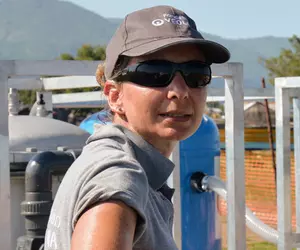
Marie Girandier: " We are talking 7 am to 10 pm, with one short break to devour a local chapatti!"
Marie Girandier, 40, is an OTV Project Manager for Industrial Wastewater Treatment. Educated as a biologist, she took the Foundation’s training course in 2017. The Uganda mission was her first travel assignment as a Veoliaforce volunteer.
How was the Aquaforce 15000 installation handled?
In terms of technology, it was quite close to what I had seen during the Foundation course. What was really new to me actually had more to do with peripheral aspects like installing the pipe network in such a way as to be available at a spot that was accessible by lorry, or setting up the inlet filters in the waters of Lake Albert that were contaminated by cholera, or organizing connections/ disconnections to be repeated on a regular basis to wash the filters, etc.
What was the most difficult aspect of the mission?
The working pace was incredibly intense. We are talking 7 am to 10 pm, with one short break to devour a local chapatti! And this for 15 days, and let me say it was highly physical, especially the initial days which were devoted to assembling the Aquaforce.
What happened when you returned from the mission?
At the office, my colleagues were very curious about what I had experienced on site. In fact, I have promised them a comprehensive presentation of the mission in the near future. On a personal note, I had to get used all over again to a sedentary activity, this after spending 15 days in the open air bolting tanks and manipulating sundry items. A readjustment period is inevitable after this, if only for the body!
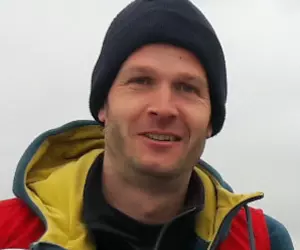
Michaël Pannard: "The challenge was to complete the mission in a short timeframe with extensive autonomy."
The Veolia Foundation is helping the French Red Cross and the Qatari and Iraqi Red Crescent organizations to supply potable water to the Khazer 2 camp, 30 km east of Mosul in Iraq. The refugee camp houses 2,500 families, which is around 30,000 people. Mickael Pannard, a Veoliaforce volunteer and project manager for this mission, has just returned after three weeks in the field. He talks about his experience.
"We installed the M40 in partnership with the French Red Cross and with the help of volunteers from the Iraqi Red Crescent. The Qatari Red Crescent were responsible for managing the tank trucks. We also trained Iraqi volunteers to operate the unit including the drinking water chemistry and treatment aspects. The challenge was to complete the mission in a short timeframe with extensive autonomy, and to quickly ensure Iraqi volunteers got to grips with the unit," says Mickael Pannard, Veoliaforce volunteer and head of the Veolia France Water Doubs unit.
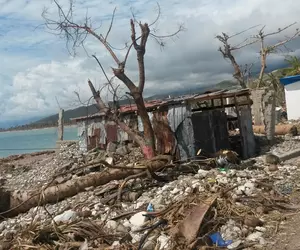
Louis-Joseph Jourdana: "Putting my experience and skills in the service of others"
Louis-Joseph Jourdana,
Plant technician and member of the Veoliaforce intervention team
A Veolia employee for the last 16 years, Louis-Joseph Jourdana is a plant technician. Every day, he ensures the proper operation of drinking water and wastewater treatment plants and carries out maintenance work. In June 2016 he underwent special training to join the Veoliaforce response team, made up of 500 volunteers, and to participate in the humanitarian emergency missions organized by the Veolia Foundation all over the world. «I wanted to put my experience and skills in the service of others» he says. On October 11, he flew to Haiti for his first mission with Veoliaforce. His objective: restoring access to drinking water for the populations most affected by hurricane Matthew. 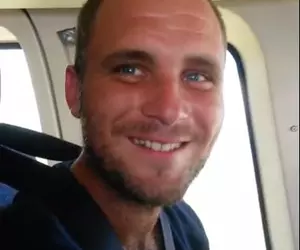
Steve Mougin: "Sharing and helping one another at the heart of the approach"
Steve Mougin, Development technician and member of the Veoliaforce intervention team
Steve Mougin has been a development technician with Veolia since 2009. Based in Chambéry, Savoy, he is responsible for commissioning and monitoring water and wastewater treatment facilities in France. In parallel, he is involved in developing new water treatment processes. In 2016, Steve was one of 25 new volunteers trained in emergency response techniques and the use of Aquaforce 500 and 5000 units. He joined the Haiti response team on October 16 for his first mission with Veoliaforce. «The Foundation offers Group employees the extraordinary opportunity to put their experience and skills to work for people in need. Sharing and helping one another are values I share, and which are at the heart of the Foundation’s approach.»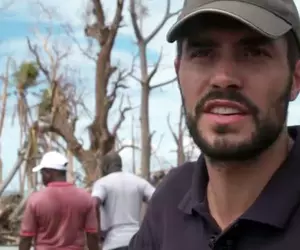
Damien Machuel: "Being useful to the most vulnerable populations"
Damien Machuel, Project Manager and permanent member of the Veolia Foundation
Damien Machuel, project manager at the Veolia Foundation, ensures the smooth running of humanitarian emergency and development missions in countries where access to water and sanitation is scarce. “My job has a significant impact and allows me to be useful to the most vulnerable populations,» he says.In 2013, he flew to Uvira, in the Democratic Republic of Congo, where he prepared a program to rehabilitate and secure water systems, with the aim of preventing cholera outbreaks.
More recently, he left for Ecuador, days only after the devastating earthquake that struck on April 16, 2016. He was part of the team responsible for deploying mobile water treatment units in the municipality of Calceta. The intervention underway in Haiti is his second emergency mission.
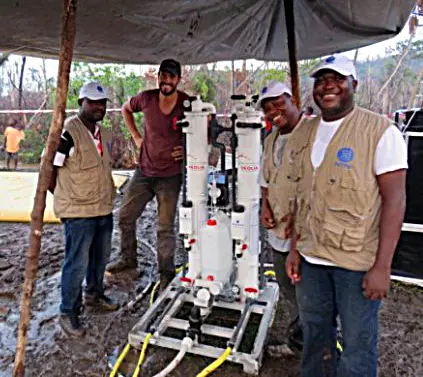
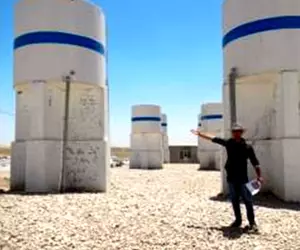
David Poinard: "You learn humility, each day measuring how lucky you are to live in a peaceful country."
The advance of Daesh (Islamic State) in Iraq has caused massive population displacements since June 2014. The autonomous region of Kurdistan has had to cope with an influx of refugees fleeing the combat zones. After a first operation with the French Red Cross in the summer of 2014 to assist displaced people, the Veolia Foundation has again mobilized by participating in an assessment mission in the Bardarash camp led by the Ministry of Foreign Affairs. David Poinard, technical engineering service manager with Eau Grand Lyon, went there in August.
In August 2015 you went to assess the situation regarding drinking water in the Bardarash displaced people’s camp. What were your first impressions when you arrived there?
David Poinard: It is striking! Arriving in Erbil, you are confronted with this amazing vision: 3000 tents set up on concrete slabs, all encircled by barbed wire and protected by armed guards... The area is particularly arid and it is impossible for this mini-city, which has sprung up in just a few months, to leave you indifferent. But after the initial emotions, you very quickly throw yourself into the work.
Your mission was to assess access to clean water. What issues did you identify?
D.P.: Lots of areas for improvement were noted at each stage in the water supply, the distribution network in particular revealed several defects, especially related to infrastructure design. I therefore listed everything that needed to be changed and tried to prioritize areas of work so the people living there will benefit as quickly as possible.
You have already carried out missions abroad, but in a different development context in Africa...
D.P.: Yes, and it's very different, especially in human terms. In Senegal, I was confronted with people who had never had access to water before we arrived and the development project was launched. In Bardarash, they are displaced persons: one was a doctor in an Iraqi city shortly before, everyone had had satisfactory living conditions and access to clean water before hurriedly leaving their city, their lives... In short, it is quite unsettling, especially because the reality of the conflict is never far away...
You left to go there without hesitation?
D.P.: No I didn’t hesitate... but nevertheless I had lots of questions. Like many people, I only knew the area through what I had read in the newspapers - a description of a place of armed conflict. My family and work colleagues were not particularly comfortable. And then, with the support of the Foundation and the answers it gave, my family were convinced.
And you would go back without fear?
D.P.: On-site safety checks are part of the landscape. You come across armed guards, dogs, mirrors, gates... The climate is slightly claustrophobic at first, but then you get used to it. People learn to live with it and are very welcoming. But Iraq is still a country where there is an armed conflict, people’s stories keep us in line: the risk is there and we have to stay alert. I would go back without hesitation, a mission like that is a personal and extraordinary cultural experience. You learn humility, each day measuring how lucky you are to live in a peaceful country.
*
* *
David Poinard, aged 38, is a trained hydrogeologist. A Veolia Group employee since 2001, he works within Veolia Eau as Eau Grand Lyon technical engineering service manager.


